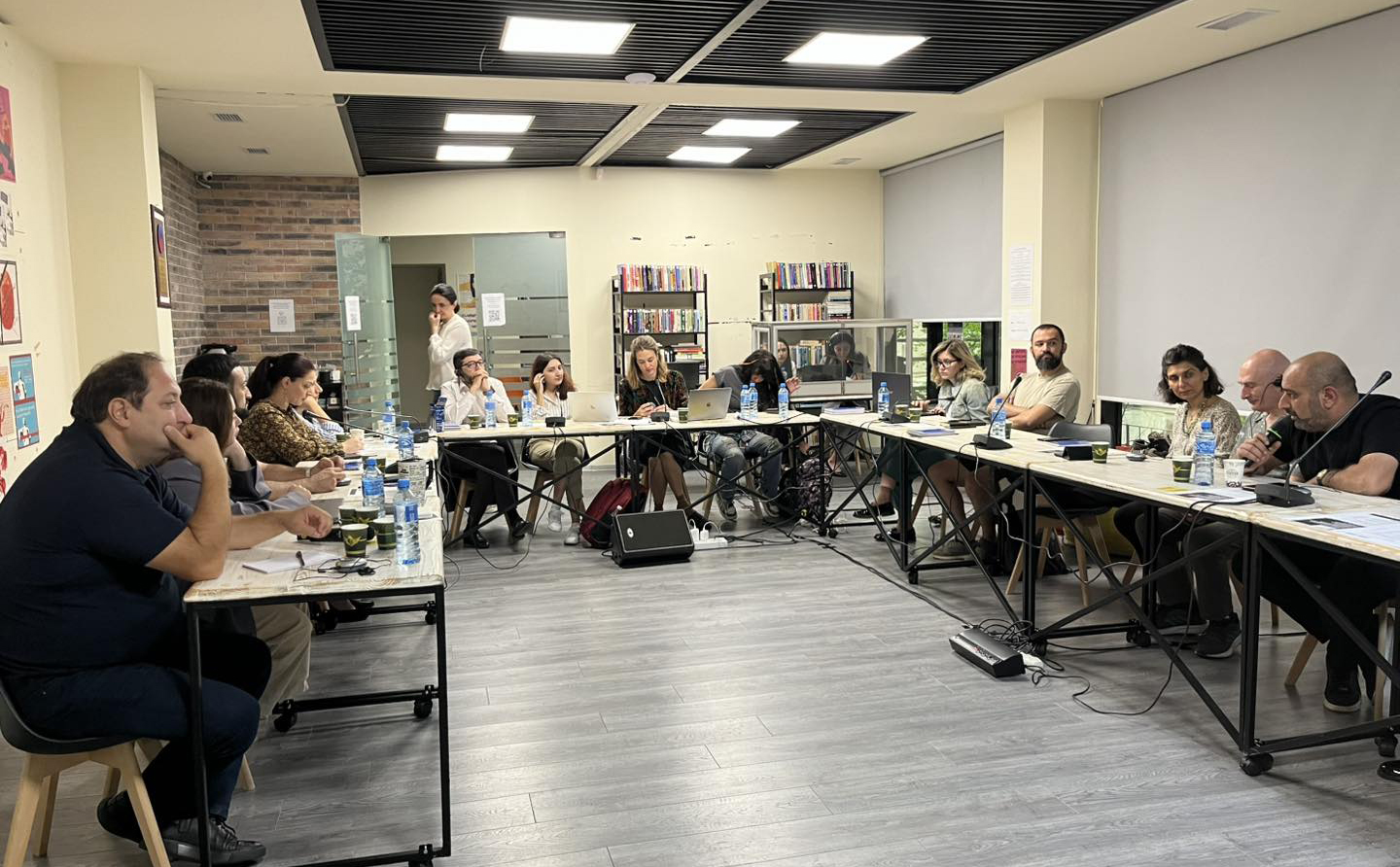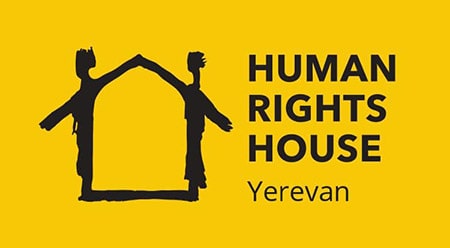 Empowering Civil Society Against Legal Harassment
Empowering Civil Society Against Legal Harassment
In September 2024, Human Rights House Yerevan and Human Rights House Foundation (HRHF) hosted a two-day workshop in Armenia to equip civil society representatives with tools to combat Strategic Lawsuits Against Public Participation (SLAPPs). The workshop gathered 17 participants, including eco-activists, environmental organisations, and human rights defenders, to discuss SLAPPs, examine their threats to democracy and free speech, and explore strategies for legal resistance. The event was facilitated by Mari Kapanadze from Georgian Democracy Initiative, Charlie Holt from Greenpeace International and the CASE Coalition, and Nora Wehofsits from HRHF.
SLAPPs in Armenia: A Growing Challenge and Impact on Civil Society
In Armenia, powerful entities such as mining companies and politicians have increasingly used SLAPPs to suppress environmental activism, human rights advocacy, and independent media. Over 25 cases involving journalists and human rights defenders (HRDs) have been identified by Armenian civil society organisations, demonstrating the growing threat.
During the workshop in Yerevan, participants highlighted that SLAPPs do not only target individuals, but entire communities. Mining companies, for instance, frequently file SLAPPs against eco-activists, creating a cycle of legal harassment that prevents activists from engaging in their advocacy. These lawsuits drain civil society organisations of financial and human resources, generating a chilling effect that discourages others from speaking out on critical public issues.
Participants shared how SLAPPs have already taken a toll on Armenia’s civil society. NGOs and HRDs are spending increasing time and resources defending themselves against these lawsuits, diverting attention from their core work. The absence of strong legal protection mechanisms makes this issue more pressing.
Beyond financial strain, SLAPPs impose significant psychological pressure. The continuous legal battles, compounded by frequent changes of judges, mean that cases can drag on for years. Administrative cases are often layered on top of civil SLAPPs, further complicating the situation for activists. This erosion of trust and confidence within civil society weakens the sector, while the coordinated nature of these lawsuits ensures that activists remain under relentless legal pressure.
The SLAPPs workshop brought together key voices from Armenian civil society to confront the growing threat of SLAPPs aimed at silencing activism in the country. Participants expressed deep appreciation to Human Rights House Yerevan for being the only organisation consistently raising the alarm on SLAPPs in Armenia. They emphasised the workshop’s significance in providing valuable knowledge and strategies for defending themselves against these legal attacks and tackling this critical issue.
Nvard Margaryan, Project Director, Socioscope, a member organisation of Human Rights House Yerevan.
Lessons from Georgia and International Standards for Combating SLAPPs
Workshop participants gained valuable insights from both regional and international experiences in tackling SLAPPs. Mari Kapanadze from the Georgian Democracy Initiative (GDI) shared lessons from Georgia, where SLAPPs have increasingly been used to suppress media freedom. Through strategic collaboration with the Bar Association and the publication of a national report on SLAPPs, Georgian civil society succeeded in raising awareness of the issue. These efforts culminated in a national conference on SLAPPs in Tbilisi, bringing the problem to public attention—although the introduction of a controversial “foreign agent” law temporarily stalled further progress.
Georgia serves as a particularly relevant example for Armenia, given the countries’ similar legal backgrounds. Both nations have experienced a rise in SLAPPs targeting human rights defenders and journalists, especially as activists in both countries challenge powerful political and business interests. Georgian civil society also has experience with establishing an Anti-SLAPP platform, which offers a best practice model from the region that Armenia can draw on.
Participants in the workshop agreed that building alliances with legal professionals, launching public awareness campaigns, and learning from Georgia’s example would be critical to fighting SLAPPs at the national level.
To strengthen this approach, Charlie Holt from Greenpeace International and the Coalition Against SLAPPs in Europe (CASE) introduced participants to international strategies and standards that could serve as models for Armenia, and spoke about several SLAPP cases against Greenpeace. Holt presented key international standards, including the European Union’s Anti-SLAPP Directive and the Council of Europe’s Recommendation on SLAPPs, which promote early dismissal of SLAPPs cases, compensation for damages, and guidelines for courts to identify SLAPPs. While these frameworks offer promising approaches, they are not legally binding for Armenia. Armenian civil society will need to advocate for the incorporation of such standards into local legislation and to ensure the CoE Recommendation is effectively implemented. Holt encouraged Armenian civil society representatives to engage with the CASE network and explore forming a national working group to gain international solidarity and legal support.
Taking Action
The workshop concluded with several key actions identified by participants. One priority is the creation of a comprehensive report on SLAPPs in Armenia, which could be used as an advocacy tool to raise awareness of the issue and push for legal reforms. Participants also stressed the importance of building coalitions and collaborating with international advocacy groups like CASE.
Another crucial area is capacity building for Armenian judges and lawyers. HRHF and Human Rights House Yerevan have already initiated discussions with the EU Delegation and the Council of Europe to organise training and awareness-raising sessions for legal professionals. Ensuring that legal practitioners are equipped to handle SLAPP cases effectively is essential for addressing this problem at its root.
Participants left with a deeper understanding of SLAPPs, a sense of solidarity, and a roadmap for future action. This workshop marks a first but important step forward in empowering civil society in Armenia and building a stronger, more supportive environment for human rights defenders, journalists, and activists facing legal harassment. With continued advocacy, international collaboration, and legal reforms, Armenia’s civil society can strengthen its resilience against these abusive lawsuits and continue its vital work.
Nora Wehofsits, International Advocacy Officer, Human Rights House Foundation.
The workshop “Combating SLAPPs in Armenia: Empowering Civil Society” was made possible thanks to the generous support of the Norwegian Ministry of Foreign Affairs.


